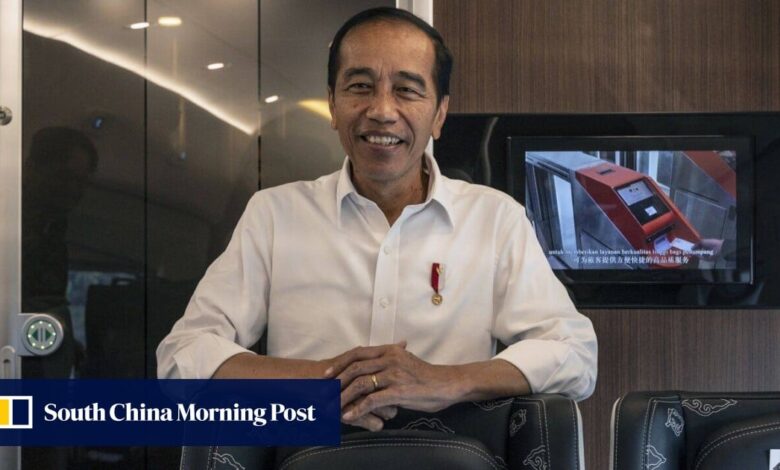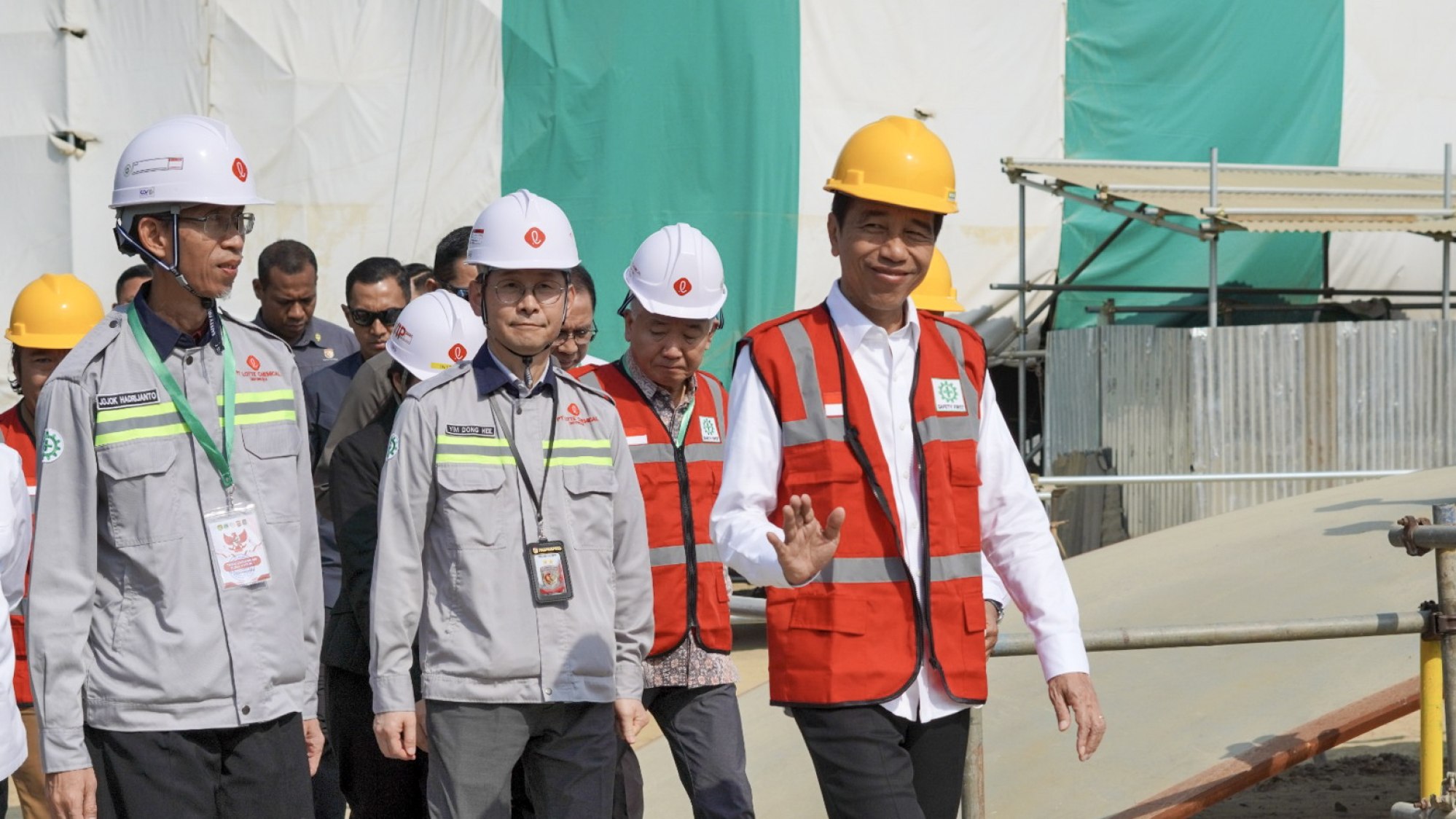Indonesia’s Jokowi warns successor against ‘changing the vision’ on infrastructure, minerals for future growth

[ad_1]
Jokowi, as the president is known, forecasts 6 per cent to 7 per cent gross domestic product growth by 2027 to 2028 as the country reaps the benefits of his policies that include an aggressive infrastructure roll-out and the push for onshore processing of mineral resources. The top end of the annual forecast would be the fastest pace since 1996, according to compiled data.
“It has to be prepared so that there’s continuity,” he said in an interview near Bandung on Tuesday. “Each leader shouldn’t have their own vision – changing the vision and the orientation would put us back at the start,” he said when asked whether his successor will continue his programmes.

Ending a decade of rule next year, Jokowi, 62, is seen to be banking on his enduring popularity to back a presidential contender who will continue his policies and buttress his legacy. That will enable the former furniture maker who was once a political outsider to stay influential for years to come. Jokowi himself may even be building his own political dynasty.
The leader who swept to power in 2014 on a promise to lift GDP growth to 7 per cent has managed to keep domestic expansion steady around 5 per cent at a time when the global economy teeters on the edge of a recession. Jokowi said during his term, the external environment wasn’t favourable and the local infrastructure wasn’t sufficient, and that’s why he’s ramping up the roll-out.
Indonesia’s Chinese-funded railway line starts test runs
Indonesia’s Chinese-funded railway line starts test runs
Speaking at the train depot of Southeast Asia’s first ever high-speed rail, Jokowi touted his infrastructure push: 16 new airports, 18 new ports, 36 dams and more than 2,000km of toll roads.
Jokowi’s aggressive building spree has stirred criticism, such as budget overruns and delays. Construction in the capital city called Nusantara isn’t proceeding as fast as anticipated.
“Infrastructure will create new economic growth centres,” Jokowi said. “But not now, maybe in the next 10-15 years. The choice is whether to build now or later. I choose to build now.”
Infrastructure will create new economic growth centres … The choice is whether to build now or later. I choose to build now
His successor must be brave, bold and not afraid to take risks, according to Jokowi.
“We need leaders who have the courage to defend Indonesia’s national interests. Leaders who unite Indonesia, who serve the people, who know the macro and the micro but can also work in detail,” he said, declining to reveal his bias.
The president’s youngest son is the latest in the family to reveal political ambitions, seeking to become a mayor in the 2024 election. Jokowi has three children and one of them is the mayor of Solo. His son-in-law runs Medan – one of Indonesia’s largest cities.
Indonesia’s Jokowi doubles down on claim that he spies on political parties
Indonesia’s Jokowi doubles down on claim that he spies on political parties
Jokowi said he wants to return to his hometown of Solo and become an environmental activist once he concludes his second and final term. “I want to return to my family. That’s the plan, but sometimes plans can change,” he said.
The president ended the interview to visit a nearby state-owned arms manufacturer PT Pindad, before heading for lunch with Prabowo, his defence minister and ex-rival who’s the former son-in-law of dictator Suharto. The two are frequently seen together.
[ad_2]
Source link




